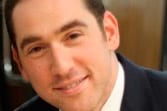
“Life is what happens to you while you’re busy making other plans”
— John Lennon, “Beautiful Boy”
Moshe’s days are ending and, as his passionate words to his beloved people reach their crescendo, he implores us to “Choose Life, so that you may live!” (30:19) At first glance, it seems to be a tautology.
Why else would we choose life if not in order to live? To better understand his point, we might notice that Moshe encourages us to choose the noun rather than the verb. He does not ask us to choose to live, he asks us to choose Life. We are exhorted to embrace something far greater than exercise and a healthy diet.
Rabbi Bahya Ibn Pakuda (11th century) wrote in his Hobot haLebabot (Duties of the Heart), “The days are scrolls, write in them what you wish to be remembered”. His poetic analogy expresses to us that our lives are ours to create and that our choices will fill the blank pages with the story we write. Moshe, however, is focusing on how we respond to the aspects of life that happen to us rather than the “blank pages” that we affect and create. “Choose Life!”, he says — the experiences, the circumstances, the trials, the triumphs, the joy, the pain, the hills and the valleys that come to us, so that we might truly live.
We tend to spend our days developing ideas about what we would like to do and how we might like to live. Then, inevitably, life happens, and presents us with situations that weren’t part of our planned programme. When that occurs, the manner in which we respond makes the difference between merely existing and actually living life. Moshe is suggesting that embracing life’s unexpected turns and “leaning into”, rather than reeling back from, the occasional discomfort such turns might cause, keeps us always engaged and saves us from becoming spectators to our own happenings.
The symbiosis of world and humanity is the source of life’s magic. When we commit to being consciously present in the events of our epic, unfolding stories, we also expose ourselves to the serendipitous delights that we might never have anticipated. Life’s events, both pleasant and painful, offer us an education unmatched by any formal system. On Rosh HaShana, this very question is posed to us for our consideration. Do we choose Life? As a congregation we answer an emphatic “yes” in our prayers. “Zochrenu LeHayim!”, we say, “put us down for Life!” When we say those words, we also have the opportunity to think about what it means to us personally, and we remember, that when we choose life and learn from its lessons, we access the deeper and richer parts of our souls, and we shine.
Rabbi Joseph Dweck
Senior Rabbi of The S&P Sephardi Community







